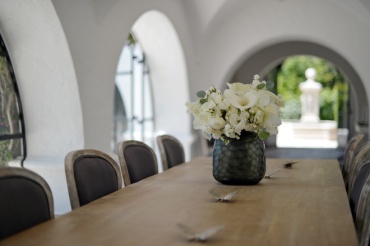
The real estate acquisition process on the French Riviera: A guide for foreign buyers by MONTY + CO Real Estate
LEGISLATION
Acquiring a property on the French Riviera, one of the world's most sought-after destinations, is an exciting endeavor. Whether you're looking to invest in a villa with a sea view in Cannes or an elegant apartment in Nice, purchasing property in France requires an understanding of the specific legal and administrative process. This guide is designed to help foreign buyers navigate this journey with confidence.
1. Assessing your purchasing capacity
Before beginning your property search, it’s crucial to establish your budget and obtain pre-approval for financing if necessary. French banks are open to providing loans to non-residents, but the conditions can be strict, particularly regarding the down payment and repayment capacity. Most banks require a down payment of at least 20–30% of the purchase price.
2. Searching for the perfect property
Once your budget is set, you can begin your search for the ideal property. The French Riviera offers a wide range of options, from modern apartments to traditional villas. The real estate experts at MONTY + CO Real Estate will guide you through this process, presenting properties that meet your criteria. Additionally, we provide access to an exclusive network of off-market properties.
3. Making an offer
When you find a property that interests you, the next step is to make an offer. In France, this is typically done through the real estate agent. Once the offer is accepted by the seller, a preliminary sales agreement (compromis de vente) is drawn up. This document binds both parties but includes a 10-day withdrawal period for the buyer.
4. Preliminary agreement and final notary signing
The compromis de vente formalizes the agreement between the buyer and the seller. It specifies the terms of the sale, including the price, payment terms, and signing deadlines. The final deed of sale is signed in the presence of a notary, a public official who ensures that the transaction complies with French law and that all formalities are properly completed. At this stage, the buyer pays a deposit, typically 10% of the purchase price, with the balance due at the final signing.
5. Notary fees and acquisition taxes
Purchasing property in France involves notary fees, generally around 7–8% of the purchase price for resale properties and approximately 2–3% for new builds. These fees cover taxes and administrative costs related to the sale.
6. Registration and property transfer
Once the deed of sale is signed, the notary registers the transaction with the French authorities. This step finalizes the property transfer, allowing you to take possession of your new home. You will receive a notarized deed of ownership, which serves as legal proof of your ownership rights.
7. Managing taxes and legal obligations
Foreign buyers should be aware of their tax obligations when purchasing property in France. These include annual property taxes and declarations of income generated by rental properties if applicable. Consulting a tax advisor is recommended to fully understand the fiscal implications and to optimize your investment.
8. Additional services for foreign buyers
For international clients, working with professionals who understand local nuances is essential. MONTY + CO Real Estate offers comprehensive services, including financing advice, property management expertise, and concierge solutions to help maintain your property after purchase.
Investing on the French Riviera is an opportunity to own a piece of paradise while benefiting from expert guidance throughout the process. Let us accompany you every step of the way.




